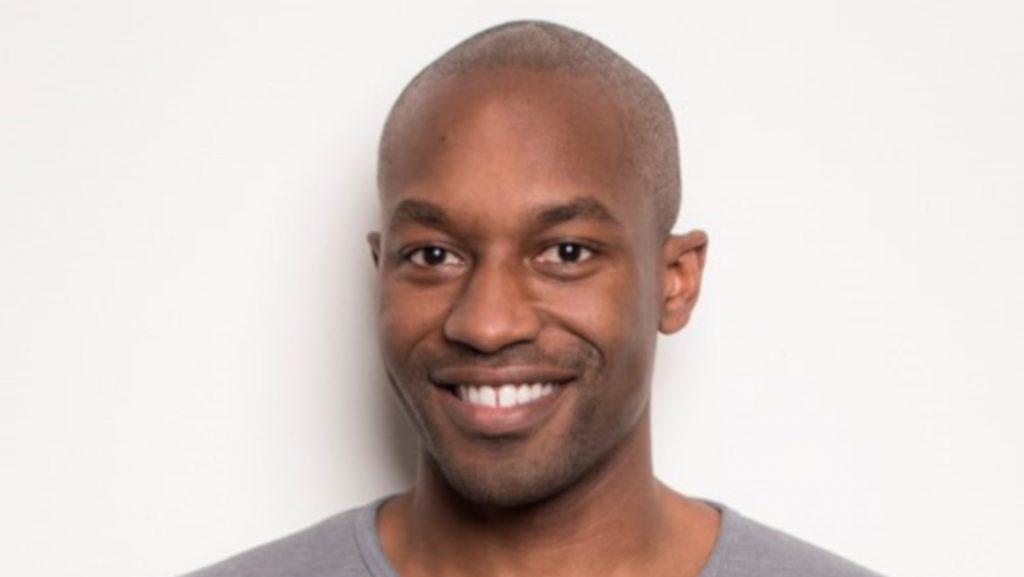We all have them. Those apps we open without thinking. Not because we need anything in particular, but because they feel… safe, in some…
SA startup Carry1st out to create Africa’s first ‘super app’ with $2m war chest

One of the most interesting trends to have come out of the Asian tech startup scene, particularly Indonesia and China, is the emergence of the “super app”.
A super app is one that offers users seamless access to a number of services, often across several verticals.
The most popular to date have been Tencent’s WeChat — also available in South Africa — which bundles messaging, social media and mobile payments and Indonesia’s Gojeck which offers an array of services that inclue ride-hailing, food delivery, payments.
Armed with a $2-million dollar war chest, Cape Town based startup Carry1st is looking to use games to build what could be Africa’s first super app.
The startup was founded last year by Sierra Leonean Cordel Robbin-Coker — who has a background in finance in the US, is an active angel investor with about 20 investments in African tech startups and is a former vice president of The Carlyle Group‘s first Africa fund — and Lucy Parry who’s from the US.
Carry1st claims its trivia game is nearing one million downloads in Kenya, South Africa and Nigeria
Carry1st launched its first game, Carry1st Trivia, in Nigeria in March. The same game was recently launched in South Africa and Kenya. The startup claims the game is “quickly approaching” one million downloads across the three countries.
It won the Best News and Entertainment Solution at the 2019 AppsAfrica Innovation Awards (see this story).
Carry1st Trivia, Robbin-Coker explained in an interview last month, is a dual-mode quiz game with a range of topical questions and fun facts about local and international sports, business, politics, history and entertainment. He says the game has 250 000 monthly active users.
The startup recently soft -launched Hyper Games, a multiplayer tournament of hyper-casual (or simple arcade-style) games.
“In Hyper we users get to play a new game everyday, online or offline, and have a chance to compete against their friends and other users. We have a few ideas we are developing for the next products, which will either be licensed or co-developed with third-parties,” says Robbin-Coker.
He insists Carry1st is not out to be a “AAA game studio” but is aiming to be the go-to conduit for “well-adapted titles” to the African continent.
He believes gaming will take-off in Africa much like the way it has exploded around the world.
“There is nothing fundamentally different about the African character – it will happen here as well. It’s a function of supply, well-adapted supply distributed through locally relevant channels, and we will see a lot of suppressed demand come to the fore.
“We are trying to be that catalyst. And when global players see there is a real market here, they’ll come in droves — we’ll look to be their partner of choice,” he adds.
The case for a super app
Robbin-Coker believes that the smartphone is shaping up to be “the most effective and economical ” channel for many of the basic goods and services that African consumers need, namely entertainment, communication, commerce and transportation.
“Our bet from observing similar global markets as well as our own across Africa, is that entertainment and communication are the most effective services to bringing people online en masse, drive digital literacy and act as a conduit to the broader global connected economy,” he says.
He adds that at their most basic level, free-to-play games are digital economies which provide users the ability to earn and purchase currency which can be used for various in-app goods and services.
Robbin-Coker points out that other companies that have made super app play off games include Tencent and Singapore’s Garena.
‘You must have a Nigeria strategy’
Carry1st’s plan is to provide games, digital goods like airtime and data and original content.
The startup also has marketing and payments services in the pipeline.
Robbin-Coker says the startup’s target market is “all of Africa”. However, the company will first roll-out in English-speaking countries, then to Arabic-speaking and Francophone countries after that.
He explains that Carry1st chose to launch in Nigeria, instead of South Africa where it is based, as it is “the largest and most difficult market” from a connectivity, distribution and payments perspective.
“If you are going to be a pan African player you must have a Nigeria strategy and it might take a while before you crack it — both points led to starting there first,” he says.
Seed round to close by year end
Robbin-Coker says Carry1st has raised about $2-million to date from prominent angel investors in Africa and the US whom he didn’t name.
The startup is in the middle of a seed round which it expects to close by year end. Robbin-Coker did not disclose the size of the round but said the funding will be used for licensing of its first third-party app, scaling Carry1st’s offline distribution, customer acquisition and to grow Carry1st’s product team.
The startup is aiming for 1.2 million active users by the end of next year.
Robbin-Coker says the startup has seen a 41% month-on-month growth rate in installs and 47% compounded monthly growth rate in revenue.
Carry1st main operational challenges, he said, include the high price of data for users, the unreliability and fragmented nature of digital payments and distribution models which he said require “bespoke approaches”.
“We’re building a platform to scale all of those challenges systematically, which forms our lasting competitive advantage –but if they didn’t exist, we could just make cool games.
“A prominent founder recently told me that startups in Africa are hard because you have to create a startup multinational corporation — capital from the West and or East, inputs from all over the global, talent from all over and market across a range of incoherent geographies — I’d echo this,” he says.
Carry1st is up against a few startups in the race to create Africa’s first locally-built all -encompassing super app.
In August Singapore-registered ride-hailing startup Gozem, which operates in Benin and Togo, told Ventureburn it plans to launch a digital wallet product as well as a food and parcel delivery service next year (see this story).
Earlier this week Egyptian startup Wasla, which raised $1-million in seed funding for its incentivised mobile browser, said it too intends to introduce new product verticals with a focus on financial inclusion next year (see this story).
Other players with their hats in the ring include Nairobi-based startup CanGo and Kenya’s Cellulant with its payments super app Tingg which it launched in October.
The question now is, which super app will rule them all? Who is your money on?
Featured image: Carry1st co-founder and CEO Cordel Robbin-Coker (Supplied)


